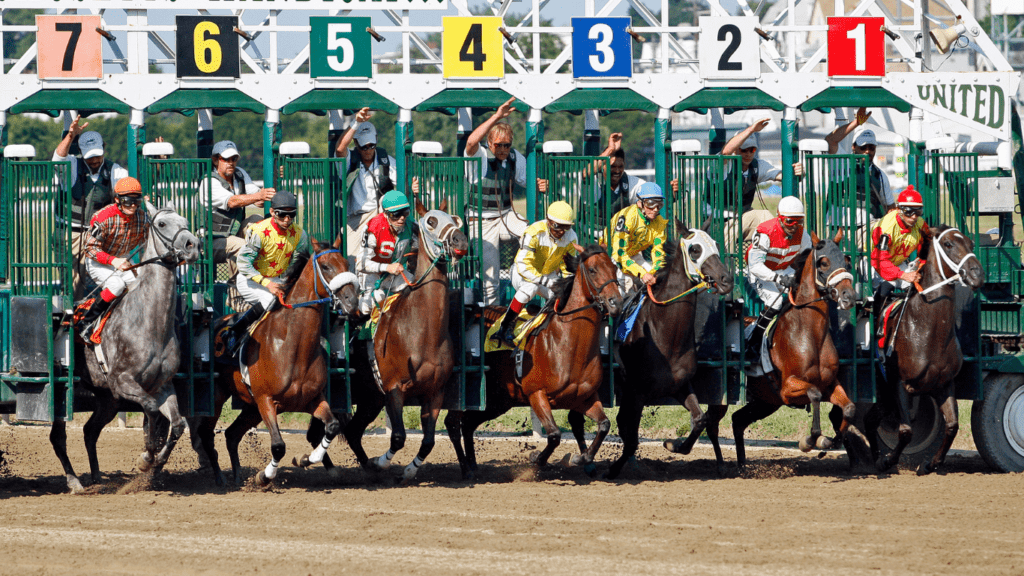Understanding Bankroll Management
Bankroll management involves allocating betting funds in a disciplined manner. Effective management ensures long-term participation in horse racing, lowering the risk of significant financial loss. I follow a structured approach to manage my bankroll, focusing on both risk and reward balance.
First, setting a budget is crucial. Determining how much I can afford to lose provides a safety net. This amount, known as the bankroll, serves as the foundation for my betting activities. It’s vital never to exceed this budget, regardless of circumstances, to maintain financial stability.
Second, establishing unit sizes plays a critical role. A ‘unit’ represents a fixed percentage of my bankroll, typically ranging from 1% to 5%. By sticking to these units, I standardize my bets, minimizing the impact of any single loss and maximizing the potential for gains.
Third, adjusting unit sizes based on performance helps maintain balance. If my bankroll increases, I might consider incrementing unit sizes to capitalize on my momentum. Conversely, during a downturn, reducing unit sizes can help preserve funds.
Lastly, keeping records of all bets aids in evaluating strategies. Documenting outcomes allows me to analyze trends, identifying what works and what needs adjustment. This continual assessment allows for informed decision-making, leading to more intelligent betting practices.
Setting a Budget

Establishing a budget is crucial for consistent success in horse racing betting. It creates a structured approach, helping manage funds effectively and mitigate risks.
Importance of a Fixed Budget
- A fixed budget acts as a safeguard against impulsive betting.
- By setting a predetermined amount for wagering, I ensure that emotional decisions don’t impact my overall financial health.
- This disciplined approach allows me to limit potential losses and appreciate victories without financial stress.
Calculating Your Bankroll
Determining an appropriate bankroll involves assessing disposable income—money I can afford to lose without affecting my lifestyle. By analyzing monthly expenses and income, I can allocate a sensible portion of my budget for horse racing. This careful calculation allows me to pursue betting activities responsibly, maintaining stability and focus.
Planning Your Bets
Planning bets enhances success in horse racing. With strategic choices and disciplined approaches, bettors can improve their outcomes.
Choosing Bet Types Wisely
Selecting the right bet types is crucial. Different bet types, like:
- win
- place
- exacta
offer varying risk and reward profiles. I focus on bet types that align with my bankroll and risk tolerance. Win and place bets, being simpler, suit cautious strategies, while exotic bets, although risky, provide larger potential payoffs. Understanding each type’s nuances and applying data-driven insights informs more informed decision-making.
Managing Stakes and Wager Sizes
- Balancing stakes and wager sizes maximizes potential returns while protecting your bankroll.
- Apply a percentage-based system where fixed portions of my bankroll dictate wager sizes. For example, betting 2%-5% of my bankroll minimizes the impact of potential losses.
- Adapting stakes based on confidence levels and adjusting after evaluating race conditions is crucial.
- This approach maintains consistency, adapts to fluctuating circumstances, and bolsters overall betting efficiency.
Avoiding Common Mistakes
Understanding how to avoid common pitfalls enhances betting effectiveness in horse racing. Recognizing missteps like chasing losses and ignoring bankroll limits can significantly improve overall betting performance.
Chasing Losses
Chasing losses poses a significant risk to any bettor. When I experience a loss, the immediate reaction might be to place additional bets in an attempt to recover lost funds. This behavior nearly always results in further losses due to emotional decision-making, rather than strategic betting. To combat this, setting strict limits for daily losses and adhering to them preserves the bankroll and promotes a more disciplined approach.
Ignoring Bankroll Limits
Sticking to bankroll limits is crucial for long-term success in horse racing betting. If I disregard these preset boundaries, the risk of depleting my funds increases. I calculate an appropriate bankroll by reviewing my financial situation and determining how much I can afford to dedicate to betting. This prevents any adverse impact on my financial health. Respecting these limits ensures responsible betting, allowing for sustained engagement in the sport without financial overextension.
Tools and Resources
Identifying the right tools and resources enhances betting strategies, empowering bettors to make smarter decisions. I’ll outline some of the most valuable assets that support bankroll management.
Tracking Tools for Investors
Investors benefit from tracking tools designed to monitor betting performance and manage funds. I find that spreadsheets offer a versatile solution for logging bets, outcomes, and calculating returns. Programs like Excel and Google Sheets provide customization for detailed analysis. For those seeking automated solutions, platforms such as BetMinder and BRMTools offer advanced tracking with real-time data updates, keeping bettors informed of trends and patterns in their betting behavior.
Educational Resources and Guides
Effective bankroll management stems from continuous learning. I recommend accessing online platforms and materials that cover fundamental and advanced betting strategies. Websites like BettingPros and Racing Post provide comprehensive guides on bankroll management and betting techniques. Additionally, courses on Udemy and Coursera offer in-depth lessons tailored for those serious about mastering horse racing betting. Engaging with forums and communities also provides opportunities to exchange insights and learn from seasoned bettors.
By utilizing these tools and resources, bettors can refine their approach to horse racing betting and develop more informed, disciplined strategies for managing their bankrolls.



